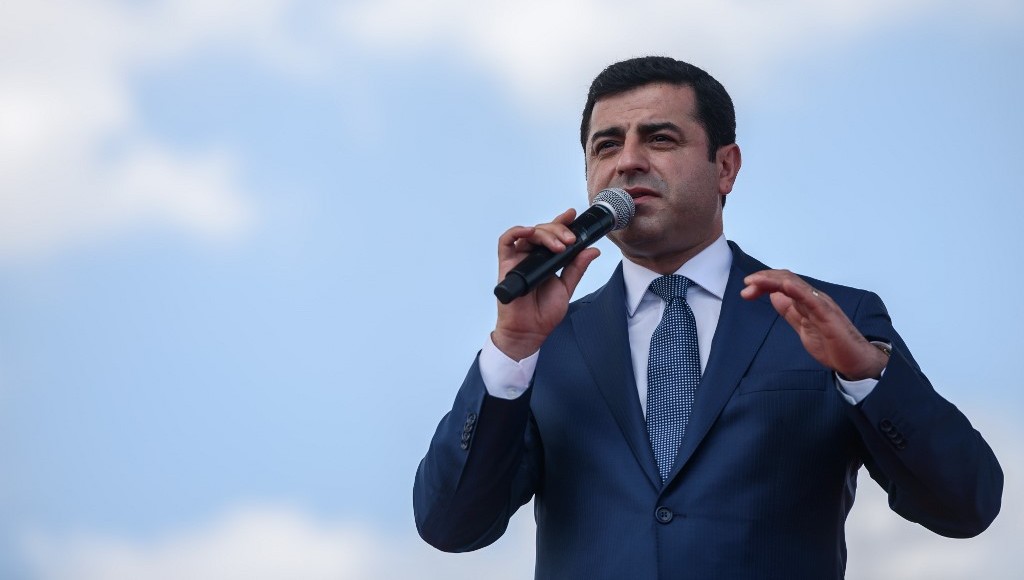Turkey’s Supreme Court of Appeals has upheld a prison sentence of four years, eight months given to Kurdish politician Selahattin Demirtaş, who has been behind bars on politically motivated charges since November 2016, Turkish media outlets reported.
The prison sentence was handed down by a high criminal court in İstanbul in 2018 due to a speech Demirtaş, who was the co-leader of the pro-Kurdish Peoples’ Democratic Party (HDP) at the time, delivered during a Nevruz celebration in İstanbul on March 17, 2013. He was convicted of disseminating terrorist propaganda for the outlawed Kurdistan Workers’ Party, listed as a terrorist organization by Turkey, the EU and the US.
The Turkish government accuses the HDP of links to the PKK, while the party, which is now the second biggest opposition party in the Turkish Parliament, denies any ties.
The top court made its decision on April 26, the day when Demirtaş along with 107 other Kurdish politicians appeared before a court in another trial for their alleged roles in deadly 2014 protests that erupted as militants from the Islamic State in Iraq and the Levant (ISIL) group overran the Syrian town of Kobane.
Prosecutors accused the 108 defendants of “attacking the integrity of the state” and crimes including looting and murder.
The HDP blames Turkish police for provoking the deaths of 37 people in violent demonstrations.
Ümit Dede, deputy co-chairperson of the HDP, said in a written statement that the top court upholding the jail sentence given to Demirtaş on the day of the first hearing in the Kobane trial is part of attacks aimed at eliminating the HDP and its elected officials through the use of law.
Recalling Turkey’s refusal to release Demirtaş despite rulings from the European Court of Human Rights, Dede said the top court’s ruling was a counter move from Turkey to keep Demirtaş in jail as promised by Turkish President Recep Tayyip Erdoğan.
In December the Strasbourg court found Turkey guilty of violating the rights of Demirtaş on five counts including violation of the rights to freedom of expression, liberty and security and free elections as well as limitations on the use of restrictions on rights. The court’s ruling was made by its Grand Chamber following appeals from both Turkey and Demirtaş to the court’s original ruling in November 2018.
However, Erdoğan sounded defiant in the wake of the European court’s ruling, accusing it of acting with hypocrisy and making a ruling without the exhaustion of domestic remedies.
Demirtaş was an outspoken critic of Erdoğan before he was jailed. He ran in the presidential elections of 2014 and 2018 as a rival to Erdoğan. Demirtaş conducted his election campaign from jail for the 2018 election.


